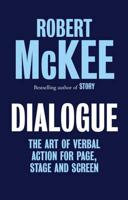Publisher's Synopsis
Language is the ability to acquire and use complex systems of communication, particularly the human ability to do so, and a language is any specific example of such a system. Human language has the properties of productivity, recursivity, and displacement, and relies entirely on social convention and learning. Languages evolve and diversify over time, and the history of their evolution can be reconstructed by comparing modern languages to determine which traits their ancestral languages must have had in order for the later developmental stages to occur. The text, Languages of the World: An Introduction, introduces readers to the rich diversity of human languages, familiarizing students with the variety and typology of languages around the world. First chapter aims to examine whether Basque (OV) resorts more often than Spanish (VO) to certain grammatical operations, in order to minimize the number of arguments to be processed before the verb. Second chapter highlights the importance of the influence of colonialism in shaping post-colonial language policy in a multilingual society. It also looks at the role of elites and the effects of their top-down language implementation on planned and unplanned developments as related to the position and status of










